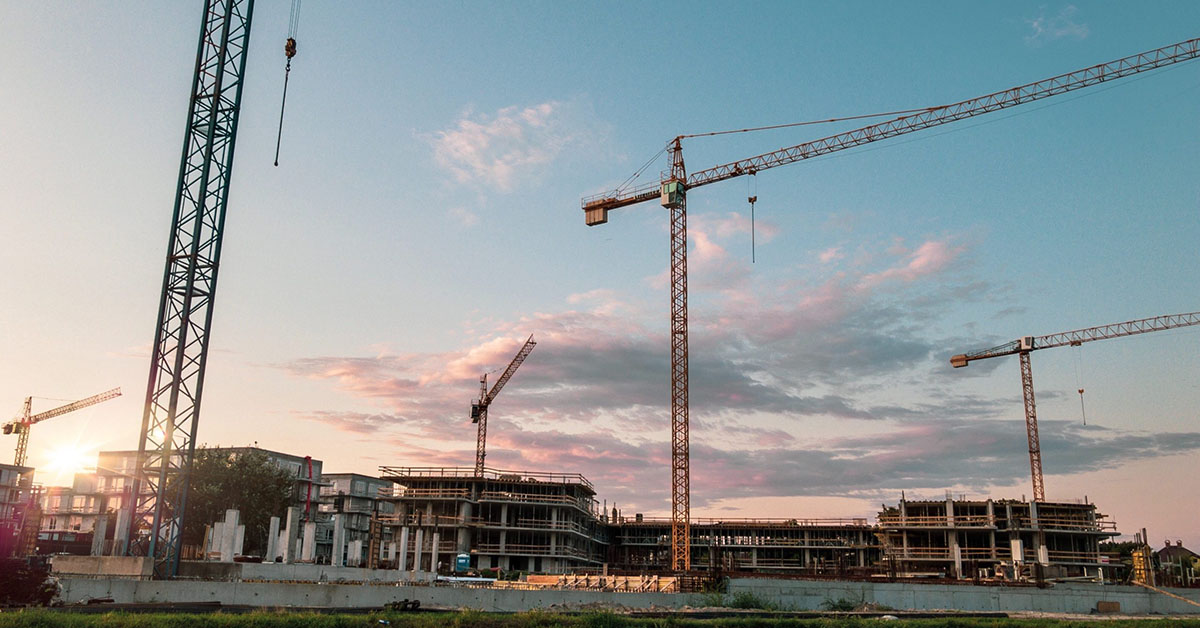The construction industry is one of the largest in the world, with the value of new construction work in the UK alone reaching £118,977 million in 2019. Despite new construction orders growing though, the sector faces several challenges over the next five years.
With 2019 seeing 3,502 insolvencies in Britain’s construction sector and a 6% drop in construction-related employment, the industry was already facing some issues before Covid-19 and Brexit introduced more.
Understanding what challenges are likely to affect you over the next year, as well as in the future, can help you plan accordingly and limit the impact they have. This will help your business grow and ensure that you are planning projects with all possible eventualities taken into account.
So what challenges are the construction industry likely to face in the next five years?
Skills shortages and an ageing workforce
Skills shortages have been a recurring issue for the construction industry over the last few years, but it is expected to become more of a problem. Between 2014 and 2016, it was estimated that 44% of those working in construction in the UK were aged 45 and over, showing that the workforce is ageing.
Many of these workers will soon be retiring, removing their skills from the workforce. Unfortunately, there are not enough younger workers to take their place, with just 9% of those aged 16 to 18 happy to consider a career in construction.
This decrease in younger talent will have a severe impact on the industry, causing a shortage of essential skills once older workers retire. Unless the sector can attract more younger people, the skills gap is only going to widen, meaning that changing the perception of construction as a career will be vital in the next few years.
Businesses should consider how they can help attract and upskill young workers, such as through apprenticeships. With new government grants and support measures in place, companies can get help in training younger workers to strengthen their teams and ensure they are not drastically affected by a shortage of skilled workers.
Shrinking backlog of work
While many firms halted work during 2020 as a result of the Covid-19 pandemic, some work was able to continue to keep construction workers employed. While this is positive overall, reducing the impact of the pandemic for individuals and companies in the sector, it means that the backlog of work is starting to decline.
The usual backlog of work provides full–time employment for many, meaning many workers may struggle to find long-term positions. In addition to this, several sectors, such as commercial office building and civil engineering, have been slow to start up again this year due to continuing restrictions and continued financial instability.
Fewer projects are currently going out to tender, which means that firms may struggle to add to their backlog of work over the next few months, if not the next year or so. This could have a big impact, especially on smaller firms.
Material shortages
Several material shortages are currently affecting construction projects across the UK and in other countries, as companies struggle with long lead times. While housebuilders are currently being affected the most, with 69% of the sector struggling to get hold of required materials, the entire industry is starting to feel the pressure.
Timber, cement, roof tiles, steel, aggregates and plastics are all currently in short supply, with the increasing demand driving inflation. On top of this, lead times are being exacerbated by changes to customs as a result of Brexit and a shortage of HGV drivers. This means that when firms can get hold of materials, they are still at risk of missing deadlines due to longer delivery times or failed deliveries.
It is expected that these materials shortages will last for months, if not longer. The increase in prices could also continue for an extended period of time affecting construction budgets.
Zero net by 2050 target
The UK government is aiming to bring all greenhouse gas emissions to net-zero by 2050. To achieve this, it is set to make the construction industry more sustainable, productive and internationally competitive. As a result, it is putting emphasis on the sector using more modern methods, which is resulting in the industry calling for more funding and support from the government.
With the construction industry accounting for 45% of total carbon emissions in Britain, this initiative is going to have a huge impact on it over the next few years. Companies in the sector tend to have a large carbon footprint due to heavy machinery and vehicles. However, they will need to start looking for alternatives in order to meet government standards, requiring a lot of investment.
As many companies are still struggling from the above issues, this is target is likely to be a huge challenge moving forward.


